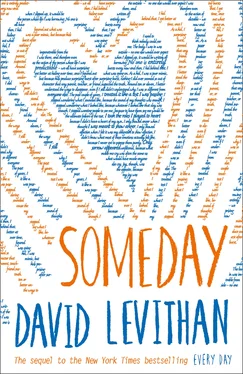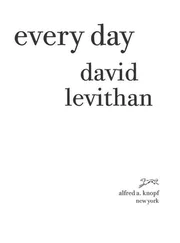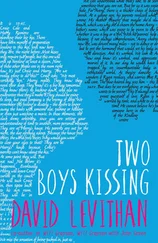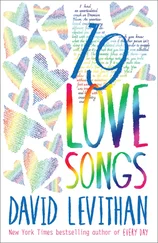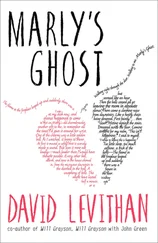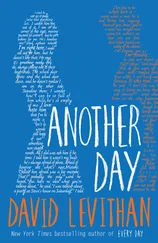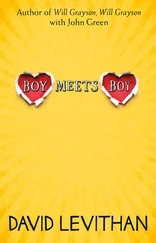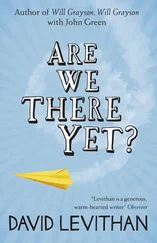1 ...6 7 8 10 11 12 ...16 Only with Rhiannon did I get to be directly myself. Now, after, I fear a part of the impulse has lingered. I fear I am beginning to show through.
On Monday, my (temporary, one-day-only) best friend tells me she senses there’s something I’m not saying, something I want to say. I tell her no, I’m just a little tired, a little lost in my own mind. I don’t think she believes me, and for a second, I have the desire to tell her everything, to tell her about Rhiannon and ask her what I should do.
On Tuesday, two guys in class give me a hard time because they were expecting me to agree that America is better off with closed borders, and that most of the problems facing America today can be traced to immigration. You’re totally reversing your opinion, they tell me, disgusted. I know I should not be deviating from what he would normally say. But I can’t force myself to repeat something I know isn’t true.
On Wednesday, my (not really my ) girlfriend must use the same shampoo as Rhiannon, because every time she comes close to me, it’s like a trapdoor. When she kisses me, I trick myself into being in the past, imagining it can be the present. I must put a lot into it, because when she pulls back, she says, Well, Tara, that was enthusiastic. And I tell her, I love the way you smell. She says, I don’t smell like anything. I want to say, You smell like Rhiannon. But what I say is, You smell like Rhiannon you.
On Thursday, I’m on crutches that I barely know how to use. After first period, a friend takes my backpack from me and says, You need to let me help you. I have a feeling the boy I’m in has turned down her help before. But this time, I welcome it.
When Friday comes, I wake up in the body of a girl named Whitney Jones. She gets up at 5:32 a.m. for swim practice, and I force myself to go, even though I know her performance is going to be off. It takes me about two periods in school to realize she’s one of the only black girls in class—a point brought home in third-period history, when both the teacher and other students keep looking at her when they’re talking about Selma, as if her skin color makes her an expert on something that happened decades before she was born. I would guess they don’t even realize they’re doing it—when people are thinking about a difference, their eyes will usually wander to someone they think embodies that difference. It always makes me feel strange, because I’m not nearly as used to it as the people I’m in are. I try to take the scrutiny on the surface level on which it’s intended—they’re looking at Whitney while they talk about John Lewis because their minds are thinking, Black people. But now, paranoid, I wonder if they also see me, a different kind of different one, underneath.
Whitney’s best friend is named Didi, and they have plans to hang out after school at Didi’s apartment. It soon becomes obvious that Didi is obsessed with a popular series of online videos on a site called Truth Serum, created by a woman named Lorraine Hines, whose catchphrase (it’s all over the site) is Truth IS the Serum. Each video on the site is like a public confessional, only confession isn’t really the right word for all of them. Some of the truths are more political—a woman telling how she really feels about being ogled on the subway, a man talking about trying to explain the concept of race to his biracial children. Most of the truths are very, very personal—people not just admitting affairs, but explaining why they think the affairs happened, or people confronting the pain of their childhoods, including (sometimes) their own culpability, or (more often) the culpability of the people they trusted and loved. There’s no narrative imposed, no set structure. The truth unfolds into whatever shape it takes when it’s exposed to the air.
Some videos are five minutes long and reduce me to tears. Others are ten minutes long and make me laugh at how true they are. Didi and I watch five, then ten of them. Sometimes, when Lorraine Hines thinks the person needs to be talking to someone in order to release the truth, she’ll ask some questions. But most of the time, she’s off camera, and the only person you see is the person telling the truth.
“I swear, I could watch this all day,” Didi says after we’ve watched a sixty-year-old man talk about how he’s never been interested in sex, and feels like he’s had a completely full life without it. “Although afterwards I’m always torn between wanting everyone to be truthful like this in real life and thinking that it would be a bad, bad idea. Because it’s one thing to watch people do it, and another to have people do it to your face, right?”
I nod.
She continues. “Like, how long do you think we could make it, only telling the truth?”
“Two minutes?” I say. This may or may not be the truth.
“Let’s try it!” she says energetically, as if she just suggested we sneak some chocolate from the kitchen.
I laugh.
“What?” she asks. “Nervous?”
There’s no way to tell her that no, that’s not why I’m laughing. I’m laughing because for a second I was thinking I could actually play the truth game—that any answer Whitney gave could be truthful when I’m doing the speaking.
“You go first,” I say.
“Do a starter question. Like . . . how was your day?”
“Okay. How was your day?”
“It doesn’t have to be—Oh, okay. It’s so funny, because even though I know we’re doing truth serum, my first impulse was to say that my day was fine. And that’s not a lie, really. But I guess there’s more to it than that. I was looking forward to this part all day, because I knew it would be the best part. When I’m in class, I’m paying attention, right? But I’m also kinda not there. Not in the way I’m here, hanging out. I don’t enjoy school. I think you do, at least some of the time. I think when you get an answer right or get an A on a paper, you get a kick out of that. But I think of it as something that means a lot to other people, not to me. You know what I mean? Like, if I get an A, that means a lot to my parents and it will mean a lot to whoever looks at my college applications. But to me? It’s not what matters. How about you? How was your day?”
I think I can answer this one, since it’s the part of Whitney’s life I know best. “I’m still tired from swim practice, which seems designed to ruin you for the whole day. It’s a lift during, but then the buzz wears off and it’s like, shit, there are still thirteen more waking hours to go. I had the usual Token Black Girl experience in history class. I know my life is completely informed by this country’s racial history, but that doesn’t mean everyone has to talk to me like I am the class’s representative of that racial history—as if every white kid in there hasn’t been molded by the very same things! That’s exhausting. And then even at lunch, I have to wonder whether people notice me because of me or because of the way I look. Exhausting. So I guess, coming from another direction, I agree with you: This right now is definitely the best part of the day. I think some of the people on those videos are doing it because they like the sound of their own voices, but I think others genuinely seem to have no idea why they’re telling the truth to a world of strangers—and that is, to me at least, much more truthful. When you’re telling the truth, you should look terrified and exhilarated at the same time, because telling the truth is navigating both of those feelings at the same exact time.” I stop. “Is that truthful enough for you?”
Didi looks like she needs to catch her breath. “I mean—yes. That was great. But what do you mean, Token Black Girl ? That’s not how I see you at all. You’re just . . . Whitney.”
Читать дальше
